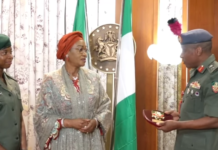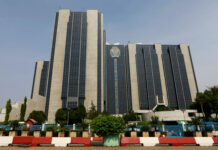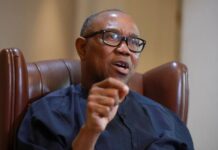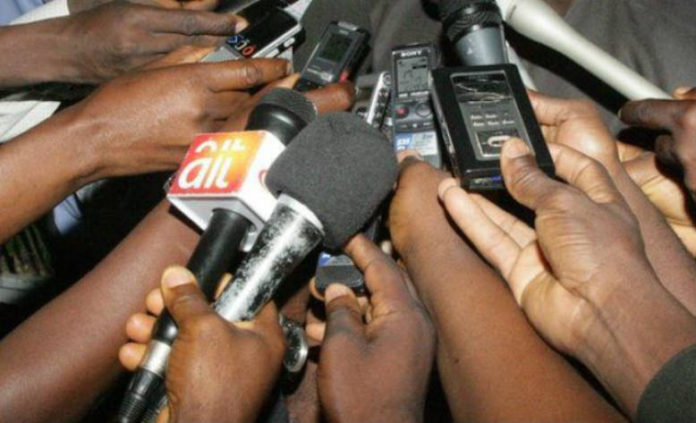A new global impunity index has revealed that Nigeria is the 12th out of 13 countries where journalists are murdered without their killers being brought to justice.
This is the second year in succession that Nigeria featured in the global impunity index compiled by the Committee to Protect Journalists, CPJ, just as the country joined the rest of the world on Wednesday to mark the International Day to End Impunity for Crimes against Journalists.
Since 2014, the UN has commemorated November 2 as a day to highlight the glaring number of unresolved journalists’ murders and the lack of punishment for their perpetrators around the world.
Last year alone, which is the second worst year for journalists in the past 10 years, 115 journalists were murdered. In 2014, UNESCO recorded 98 cases of killing of journalists.
The global impunity index by CPJ revealed that Islamic terror groups have been responsible for killing a large number of journalists without fear of being punished.
Somalia has maintained the first position as the worst country where journalists have been murdered with impunity and the Islamic terror group Al-Shabaab is alleged to be responsible for most of the murders.
Other countries that featured prominently in the global impunity index are Iraq, Syria, Philippines, South Sudan, Mexico, Afghanistan, Pakistan, Brazil, Russia, Bangladeshi, Nigeria, and India.
According to CPJ, five journalists were killed in Nigeria in the past decade with the perpetrators getting away with the murders.
The murders have been attributed to the Islamic Boko Haram and other unknown assailants.
CPJ noted that Nigeria has failed to identify or prosecute not only the culprits in any of the murders of the past 10 years but also the perpetrators of assaults, some of which allegedly involved police and security forces.
The murdered journalists in Nigeria were local journalists, covering crisis, politics, and human rights. Those documented as killed in the last 10 years by the CPJ are: Enenche Akogwu, Channels TV.
January 20, 2012, in Kano, Nigeria; Zakariya Isa, Nigeria Television Authority October 22, 2011, in Maiduguri, Nigeria; Sunday Gyang Bwede,The Light Bearer April 24, 2010, in Jos, Plateau State, Nigeria; Nathan S. Dabak,The Light Bearer April 24, 2010, in Jos, Plateau State, Nigeria and Bayo Ohu,The Guardian September 20, 2009, in Lagos, Nigeria.
Others are Okezie Amaruben,News service September 2, 1998, in Enugu, Nigeria; Tunde Oladepo,The Guardian, February 26, 1998, in Abeokuta, Nigeria and Fidelis Ikwuebe, Freelancer April 18, 1999, in Anambra, Nigeria.
A breakdown of the 827 killings of journalists in the past decade as recorded by UNESCO, showed that 95% of killed journalists are local and only 5% are foreign correspondents, only 8% of the 827 cases are reported to be resolved, male journalists account for 94% of journalists killed, and 38% of killed journalists worked in print media.
Impunity is widely recognised as one of the greatest threats to press freedom, and international pressure to address it led the UN General Assembly to pass a resolution in 2013, recognising November 2 as the International Day to End Impunity for Crimes against Journalists. The date was chosen in commemoration of the assassination of two French journalists in Mali on 2 November 2013.
UNESCO Assistant Director-General for Communication and Information, Frank La Rue said in a message to mark International Day to End Impunity for Crimes against Journalists that UNESCO is concerned that impunity damages whole societies by covering up serious human rights abuses, corruption, and crime.
He called on Governments, civil society, the media, and everyone concerned to uphold the rule of law and join in the global efforts to end impunity.
Nigeria has made progress by responding for the first time in the UNESCO’s impunity accountability mechanism, which requests information on the status of investigations into killed journalists.
Findings in the CPJ global index showed that in the past 10 years, around 30% of murdered journalists were first taken captive and the majority of them were tortured. In at least 40% of cases, the victims reported receiving threats before they were killed.
Also, Political groups, including ISIS and other extremist organisations, were the suspected perpetrators in more than 40% of all murder cases.
Some of the key findings of the UNESCO DG’s Biennial Report on the Safety of Journalists and the Danger of Impunity showed that 213 journalists were killed between 2014 and 2015. 36.5% of these murders occurred in the Arab states, that is 78 killings.
Reflecting the extreme vulnerability of journalists working in conflict zones, UNESCO’s statistics on journalists killed in 2014-2015 showed that most of the killings took place in countries where there has been armed conflict, with 126 cases, or 59% of all cases.
According to UNESCO, 2015 witnessed a sharp increase in the number of online journalists killed, with 21 documented cases of killings, or 18% of all cases, compared to just two in 2014. Almost half of these were Syrian journalists and bloggers covering the conflict in Syria. The majority of journalists killed in 2014-2015 were television journalists, whereas in almost every previous year of the last decade print media journalists constituted the largest group affected by fatal attacks.
UNESCO pointed out that confirming a trend that could be noted throughout the decade, the vast majority of victims – representing almost 90% – were local journalists. In 2014, there was, however, a significant increase in the number of foreign journalists killed, with 17 such cases compared to an average of four in previous years.
A gender-based analysis of the victims of journalists’ killings in 2014-2015 revealed that, as in previous years, men have been the target of a far greater number of killings than women, with 195 fatalities among male journalists against 18 among female journalists. This difference, according to UNESCO, goes beyond the imbalanced representation of women in news media organizations and may partially be explained by the fact that fewer women journalists cover conflict zones.
A particular case of impunity in Nigeria was the murder of Eneche Akogwu in 2012, a 31-year-old cameraman with the Channels TV who was interviewing witnesses of a series of Boko Haram terrorist attacks when unidentified gunmen killed him. The Nigerian authorities have failed to bring those who killed Eneche to justice.

























